There’s beach volleyball at the Eiffel Tower, swimming in the River Seine and urban sports in Place de la Concorde – as well as events in the more traditional surroundings of a stadium or aquatics centre.
The list is not exactly as originally envisaged, faced with financial problems the Paris committee produced a revised venue list which its says saved €150 million by scrapping two building projects and amalgamating other events into the same venue.
There are now only two new developments for the Games – the aquatics centre next to Stade de France in Saint-Denis and the Athletes Village, also in Saint-Denis, which after the Games will be repurposed as housing for local people.
The rest of the events will take place either in existing sports venues – some of which, like the Stade de France, will get a pre-Games revamp – or in city locations.
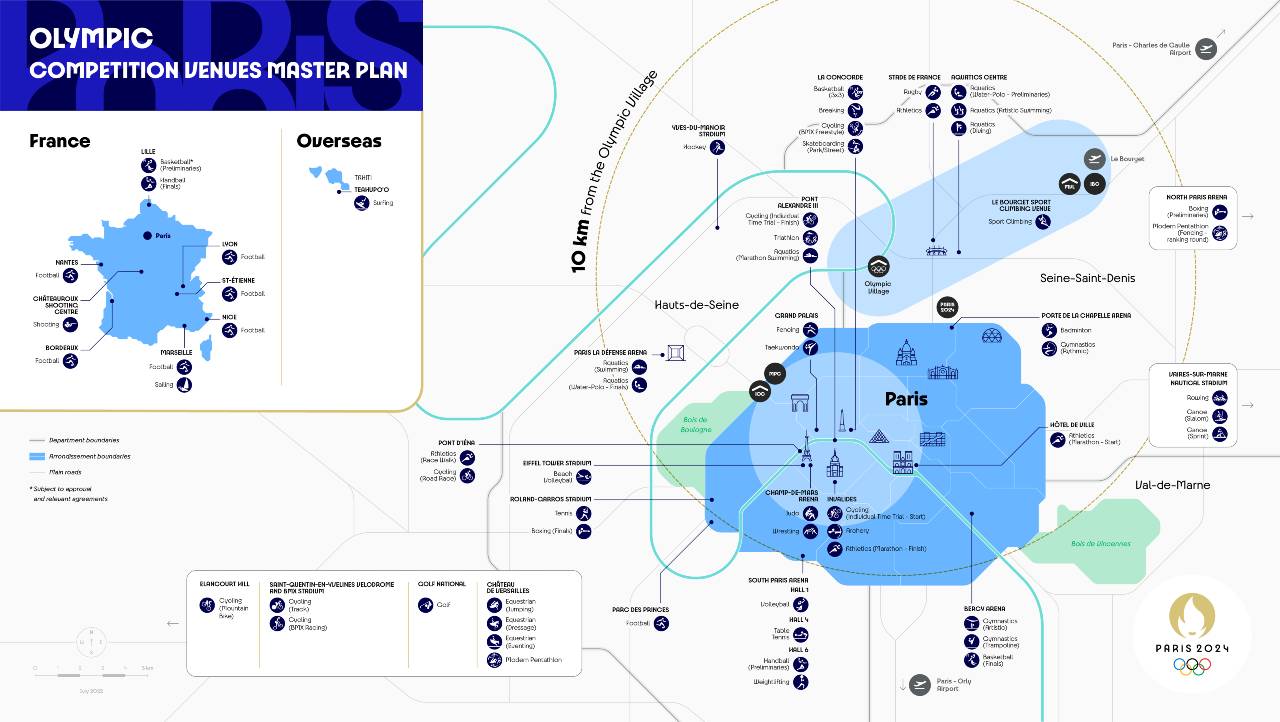
Unless otherwise stated, venues will host both the Olympic and Paralympic competitions for each sport. You can find the full list of events and venues here.
Paris
Not all of the events are in the French capital, but unsurprisingly for a Paris Olympics, most events are in or around the city.
The most eye-catching events will be those hosted within the heart of the city itself, including plenty of outdoor venues, to really integrate the games into the daily life of the city.
City centre
Taekwondo and fencing – the beautiful and historic Grand Palais, which usually operates as a museum, will host fencing and taekwondo.
Cycling – some cycle events will finish along the Champs-Elysée, as the Tour de France does.
Marathon – the marathon will come through the heart of the city, as the annual Paris Marathon does, and non-athletes can get involved in the Marathon pour tous (marathon for all) which uses the same route.
Urban sports – this year’s new events, including breakdancing, and other urban sports will be held in the Place de la Concorde
Archery – will be held at Les Invalides, a historic landmark begun in 1690 on the orders of Louis XIV for injured soldiers.
Wrestling, judo and beach-volleyball – will be held on the Champs-de-Mars, next to the Eiffel Tower.
Cycling, walking racing, triathlon and open-water swimming – these will all be held partially on (or underneath in the case of the swimming) the Pont d’Iéna over the River Seine in central Paris. City authorities have embarked on a massive clean-up project to make the Seine safe for swimming and after the Olympics river-swimming will be opened up to all.
Stadium events
Stade de France – France’s 81,000-seater national stadium in the suburb of Saint-Denis north of Paris will host the closing ceremony, athletics and rugby.
Seine-Saint-Denis is one of France’s poorest départements, and the Olympics has been envisaged as a major regeneration project for the area. It hosts the HQ of the Olympics organising committee and there is plenty happening in the northern area (which is well connected to the city of Paris via Metro and RER trains).
Olympic Village – the athletes will stay in purpose-built accommodation in Saint-Denis which afterwards will be available as housing for local people.
Diving, synchronised swimming and water polo will all be held in the Aquatics Centre, the new construction which is opposite Stade de France.
Shooting, climbing and the media centre – will be hosted in Le Bourget, Seine-Saint-Denis.
Hockey – will be held in Colombes, in the Hauts-de-Seine département to the west of the city.
Swimming – will be at the La Défense Arena in western Paris. A multi-function arena, it is the home of Stade Français rugby club, while also hosting multiple sports events and being used as a music venue in the evening.
Tennis and boxing – Roland Garros – home of the French Open – will naturally host tennis events, as well as boxing.
Table-tennis, weight-lifting, volleyball, boccia and basketball – the Parc des Expositions (rechristened ‘south Paris arena’) will host these events
Gymnastics and basketball – the Accor Arena hosts the finals of the basketball, as well as gymnastics events.
Football – Parc des Princes, home of Paris-Saint-Germain, will host football.
Badminton, rhythmic gymnastics – the La Chapelle arena hosts rhythmic gymnastics events, plus badminton.
Boxing, modern pentathlon and sitting volleyball – will be held at the expo centre at Villepinte, in the northern suburbs, which will be rechristened ‘North Paris Arena’ for the Games.
Outside Paris
Although most events will be in or around the capital, there are some other host sites. Some of these are for reasons of practicality since the landlocked capital cannot host sailing or surfing, and others are to give people outside Paris a taste of Olympic fun.
Lille – Handball events will be held at the Pierre-Mauroy stadium in Lille in northern France, which will also host some football.
Nice, Marseille, Lyon, Saint-Etienne, Lille, Bordeaux and Nantes – will all hold some football games in their town stadiums
Marseille – the southern city of Marseille will hold sailing events
Chateauroux – the existing shooting range in the central French town of Chateauroux will host shooting events
Tahiti – will host surfing. The island of Tahiti is part of French Polynesia, one of France’s overseas territories, which makes it technically part of France, despite being 15,000km away from Paris. It’s also the first place that the sport of surfing was observed by a European (Captain James Cook in 1770).
Versailles – The site of one of the world’s most famous royal palaces is only about 20km outside Paris and will host equestrian events and the modern pentathlon.
Saint-Quentin-en-Yvelines – the Vélodrome nationale in the town of Saint-Quentin, about 25km outside Paris, will host the track cycling events, while golf will be held in the same town.
Elancourt – the town of Elancourt, about 30km from Paris, will hold the mountain bike events, while nearby Trappes will host the BMX bike events.
Vaires-sur-Marne – the commune about 25km east of Paris will host canoeing and kayaking at the Stade nautique.
The games run from July 26th to August 11th, 2024, followed by the Paralympic Games from August 28th to September 8th, 2024.

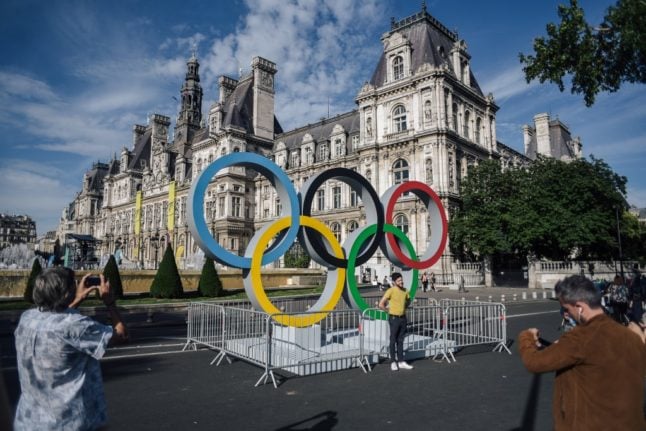
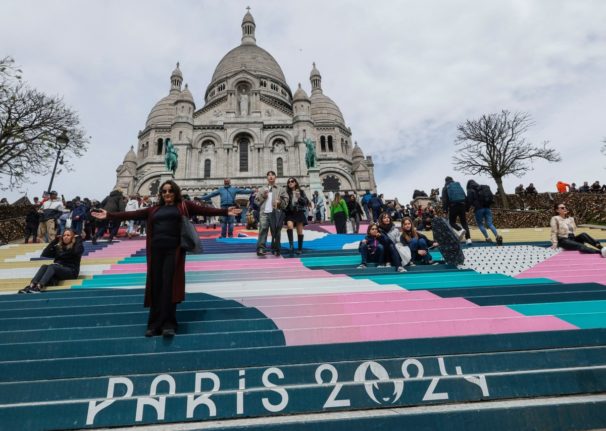
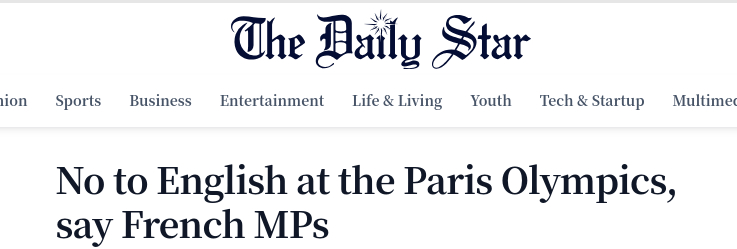
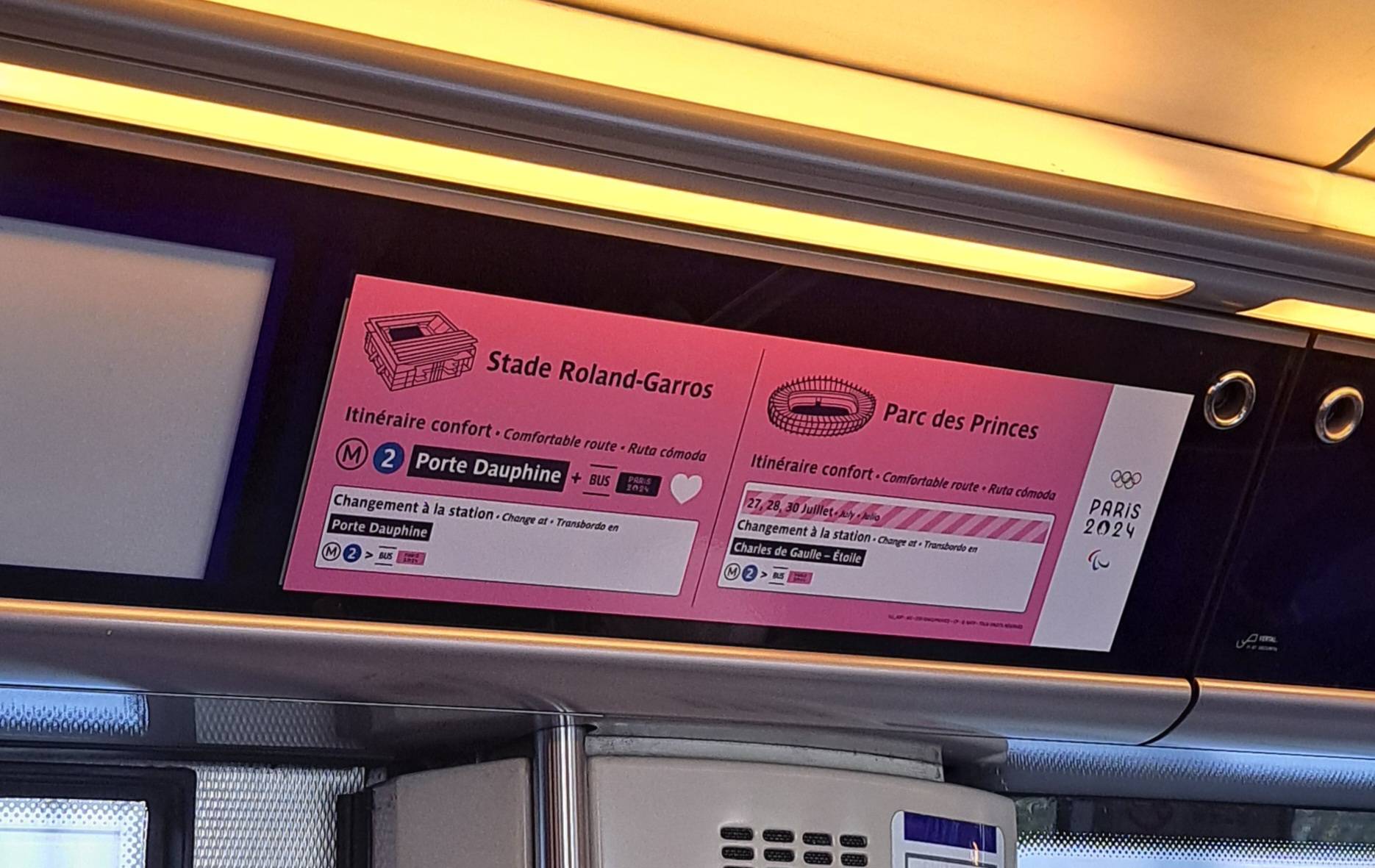
 Please whitelist us to continue reading.
Please whitelist us to continue reading.
Member comments